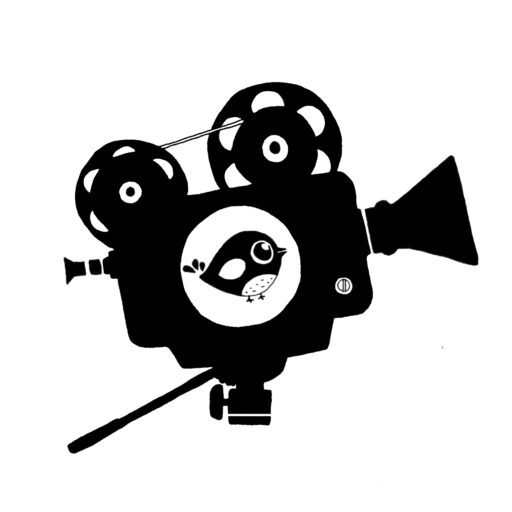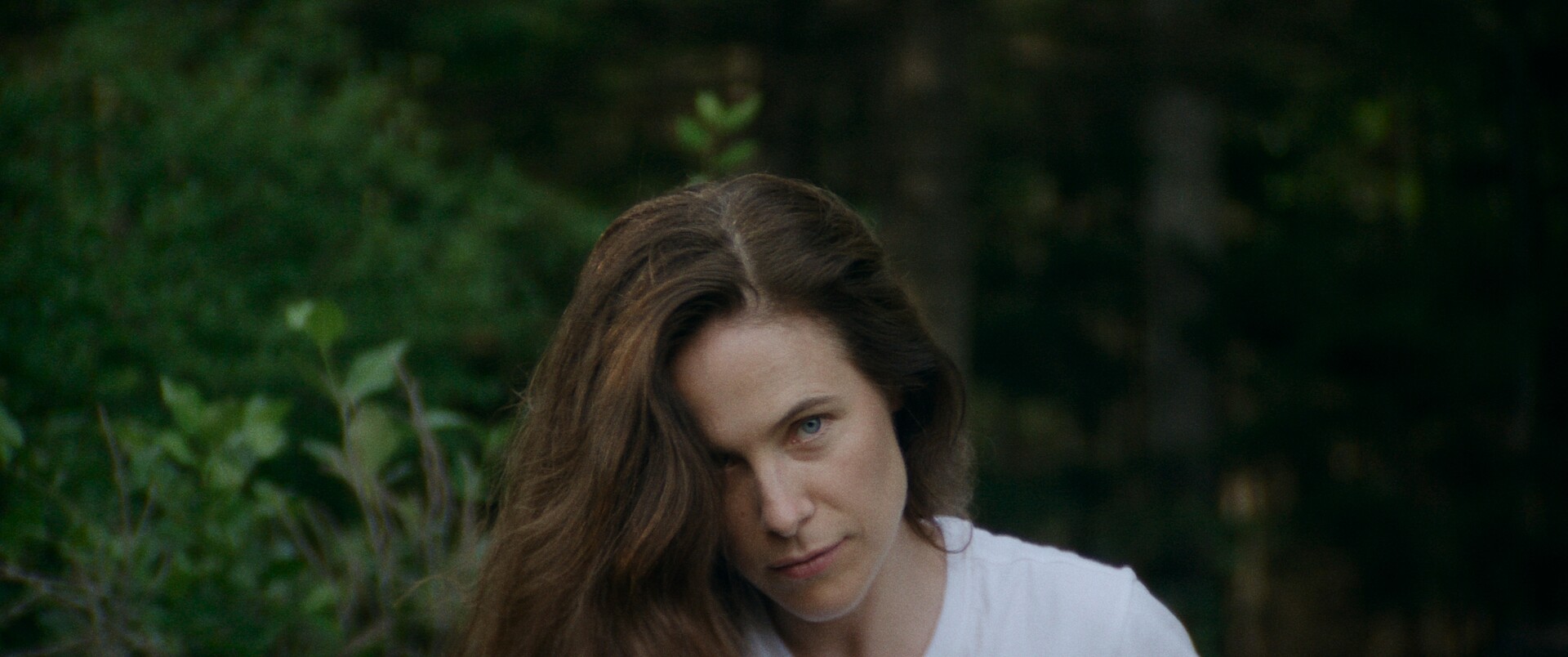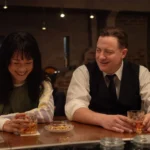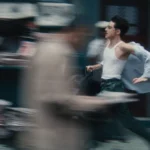Writer/director Jesse Noah Klein’s Best Boy opens with a funeral – the patriarch of the Seligmans is dead, and his wife and three children must deal with the aftermath together (whether they want to or not). This starts with the “Best Boy” competition, a yearly tradition pitting siblings against each other to devastating and humiliating effects. Tense and darkly comic, Best Boy poses the ultimate question to the Seligman children – whether they want to heal, or keep playing. What About Birdy sat down with director Jesse Noah Klein to talk family trauma, the importance of language and exploring drama through a comic lens.
WAB: Tell me about your cast. How did you pick them and did you work together on each of their characters?
JNK: I had a very clear idea of who these people were to begin with, but it’s also my role to share with my cast that information, that care I have for these characters, and then work on it with them. It’s a collaboration, and in this case, the cast came together really organically. I decided in the earliest iterations of the script that they were all English-speaking and Jewish, from Quebec, because that’s what I am. But as it got closer, there were certain actors I realised I really wanted to work with. Liz Roy [who plays the mother] was one of them, I had seen her in a Xavier Dolan film [Tom at the Farm] – I thought she was great. And once I had her, Caroline Dhavernas – who plays Philip – really made sense. What didn’t make sense for me was to have a Quebecois mum and then three Anglophone Jewish kids, so it was about finding a delicate balance.
WAB: Speaking of language, the mother at times switches to French. What role does it have to play in Best Boy?
JNK: The way I use language in the film is all about power. When the mum feels like her back is up against the wall, she switches to French. A couple of times in the film, the character reads Hebrew and that’s the father’s language. 85% of the film is in English, also his language – she was forced to live that way. Once I chose the actors, I worked very closely with each of them individually, talking through the script slowly, line by line – what’s the subject here? Why did you make this choice? I was open to changing dialogue. Sometimes Liz would say “I think I would say this in French” or “I wouldn’t have said that in French” – usually I would agree with their suggestions. This meant that once we were on set, we were all on the same page – we’d already done the work together.
WAB: The film is all about the family’s relationship with the father, but of course, we never see him. Did you devise a character for him, or talk about him during filming?
JNK: The way the eldest brother uses the phrase “it’s what Dad would have wanted” is really powerful to me. The father is the dominating presence and the driving force despite never being in the film. It’s his legacy and the way he raised them that creates the film as it is now. Even if we never had explicit conversations about the father, every conversation was really about the father, because he’s the one who controlled the whole family. Philip, for instance, has moved as far away as possible – I thought about the furthest place from Montreal, and ended up on Squamish, British Columbia, a really random small town for someone who’s lost. Even she, as estranged as she is from her family, is defined by it to varying degrees.
WAB: Best Boy plays with genres, particularly comedy and drama. There was something very Dogtooth about it. Did you ever plan for it to be funny?
JNK: There are two things I’d say to that. The first is that I realised I wanted to introduce a darker, more comedic tone to my work, because to be perfectly honest that’s who I am. That’s how I see the world. I’m very proud of the film I did before this one, and love it in a different way, but it’s a pretty straight drama and I realised that there was a whole other aspect of my personality I wasn’t putting into my work. Best Boy is more accurate in terms of who I am, and it is a writer-director film – I was the engine for it and I wanted to reflect that. I think there’s a darkly comic element to life and to family – it can be distressing and traumatic, but it can also be kind of funny.
The other thing is that Dogtooth is undeniably present in the film. When it came out, I was in film school and I was amazed by how rich a one location film could be on a 250,000 euros budget. Inevitably, people will bring it up, but I also feel like there’s an aspect to Best Boy that is a bit more emotionally immediate and raw, like 1970s American Independent cinema. There is a kind of formal rigour and distance present in [Yorgos] Lanthimos’ films, especially his earlier ones, but on the other hand, there are equally these moments of raw emotional tension that to me are just as important – Best Boy lives between the two.
WAB: The film explores the patterns that we inherit from our parents. What does Best Boy tell us about family trauma?
JNK: It’s certainly the heart of the movie, and a theme I’m interested in exploring, a thread that runs through my other films as well. It was important for me to show how we carry that. We feel this push pull between the parents and children – the daughter wants her mother’s approval but also runs from her. The way our parents come to define us was a concept on my mind while I worked on the script and with the actors, but it’s also about how we rail against that. As I’ve become a parent myself, I wonder whether I want to be like my parents or not. Obviously everything in this film is grossly exaggerated and not like my personal life at all, but certainly one thing that it is examining is a patriarchal model which we have been questioning for years. It’s still present, in ours and in other cultures – and it’s certainly present in this family. But each of them, including the mother, never thought they could take the shackles off. And this film, from beginning to end, is them realising how to do that.
WAB: What does the future of family look like for you then?
JNK: In the film, the father is dead – and that’s not a spoiler, it’s in the first shot! The mother has assumed the role of the matriarch and she will rule the family in her own image, but she’s also able to do it with love, with equanimity, giving the children space to be themselves, to choose to grow. As someone with a family of my own, that’s certainly how I am. I think it’s definitely not just questioning, but skewering this outmoded patriarchal model, and showing that a more collaborative environment is possible.
Best Boy screens at the Edinburgh International Film Festival.





